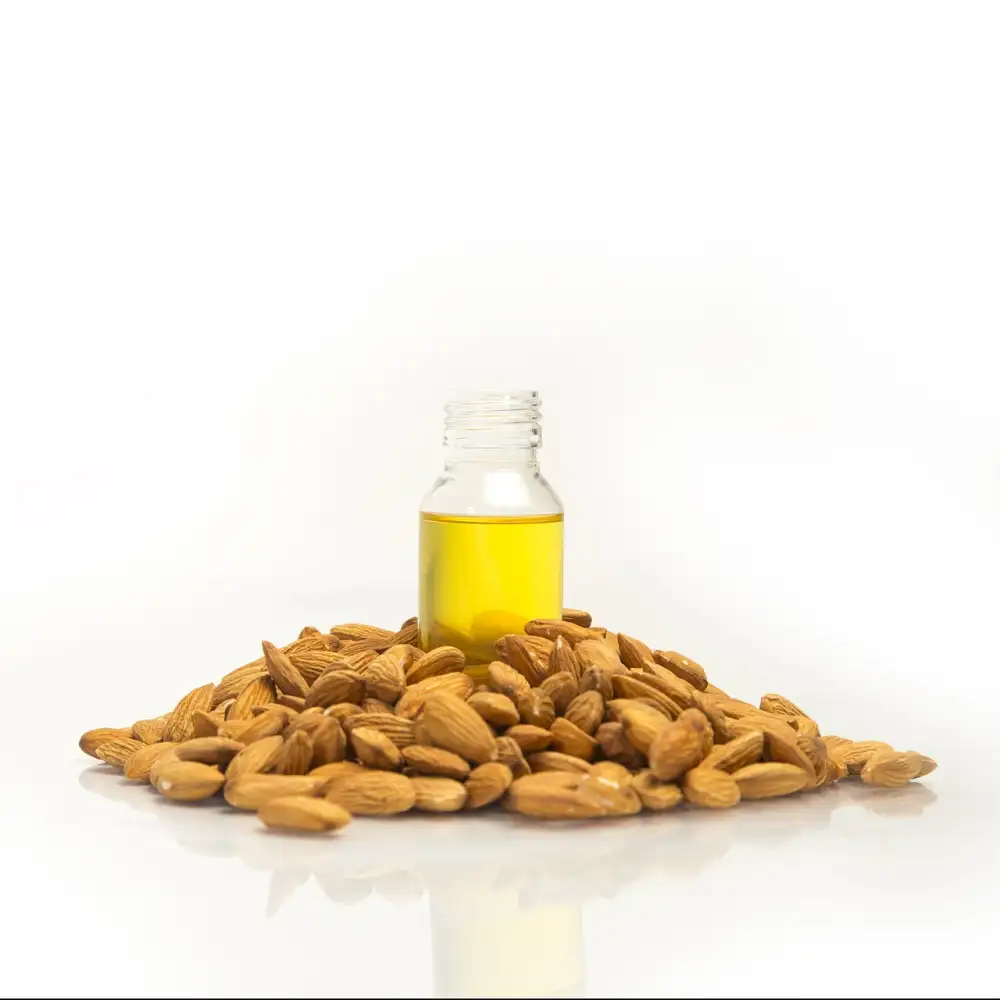Unlocking the Health Benefits of Seed Oils: A Comprehensive Guide to Nature's Nutritional Powerhouses

Seed oils are a treasure trove of health benefits. Derived from various seeds such as flaxseed, chia seed, and sunflower seed, these oils are packed with essential nutrients that can boost overall well-being. From promoting heart health to enhancing brain function, seed oils offer a wide range of advantages. In this comprehensive guide, we will explore the nutritional value of seed oils and delve into their numerous health benefits. So let's unlock the power of nature's nutritional powerhouses!
Nutritional Value of Seed Oils
Seed oils are not only delicious but also packed with essential nutrients that can benefit our overall health. These oils are rich in vitamins, minerals, and antioxidants, making them a valuable addition to any diet. They provide a good source of healthy fats, including monounsaturated and polyunsaturated fats, which are known to promote heart health and reduce the risk of chronic diseases. Additionally, seed oils contain important micronutrients such as vitamin E and phytosterols, which have been linked to improved immune function and reduced inflammation. Incorporating seed oils into your meals can help ensure you're getting a wide range of essential nutrients to support your body's needs.
Omega Fatty Acids in Seed Oils and their Importance for Health
Omega fatty acids are essential nutrients found in seed oils that play a crucial role in maintaining good health. These fatty acids, including omega-3, omega-6, and omega-9, are known for their numerous health benefits. Omega-3 fatty acids have been linked to reduced inflammation and improved heart health. Omega-6 fatty acids help regulate blood pressure and support brain function. Omega-9 fatty acids contribute to healthy cholesterol levels. Including seed oils rich in these omega fatty acids in your diet can provide a natural boost to your overall well-being.
Antioxidant Properties of Seed Oils
Seed oils are not only rich in essential fatty acids, but they also possess powerful antioxidant properties. Antioxidants help protect our cells from damage caused by free radicals, which are unstable molecules that can lead to chronic diseases and aging. The high levels of antioxidants found in seed oils, such as vitamin E and phenolic compounds, help neutralize these harmful free radicals and reduce oxidative stress in the body. Incorporating seed oils into your diet can provide a natural defense against cellular damage and promote overall health and well-being.
Seed Oils and Heart Health
Seed oils have long been recognized for their potential benefits in promoting heart health. These oils are rich in monounsaturated and polyunsaturated fats, which have been shown to help lower cholesterol levels and reduce the risk of heart disease. The high levels of omega-3 fatty acids found in certain seed oils, such as flaxseed oil and chia seed oil, have also been linked to improved cardiovascular health. These omega-3 fatty acids help to reduce inflammation in the body, lower blood pressure, and prevent the formation of blood clots. Incorporating seed oils into your diet can be a simple yet effective way to support a healthy heart.
Seed Oils and Brain Health
Seed oils play a crucial role in promoting brain health. They are rich in omega-3 and omega-6 fatty acids, which are essential for the proper functioning of the brain. These fatty acids help in building cell membranes and maintaining their integrity. They also support the production of neurotransmitters, which are vital for communication between brain cells.
Research has shown that a deficiency in omega-3 fatty acids can lead to cognitive decline and an increased risk of neurological disorders such as Alzheimer's disease and depression. Seed oils, such as flaxseed oil and chia seed oil, are excellent sources of omega-3 fatty acids.
In addition to omega fatty acids, seed oils also contain antioxidants that protect brain cells from oxidative stress and inflammation. These antioxidants help reduce the risk of age-related cognitive decline and improve memory and learning abilities.
Consuming seed oils regularly can enhance brain function, improve focus, and boost overall cognitive performance. Incorporating them into your diet by using them in salad dressings or drizzling them over cooked vegetables can be an easy way to reap their brain-boosting benefits.
Remember to choose high-quality seed oils that are cold-pressed or unrefined to ensure maximum nutrient content. It is also important to store them properly in a cool, dark place to prevent oxidation.
In conclusion, incorporating seed oils into your diet can have significant benefits for brain health. Their rich content of omega fatty acids and antioxidants supports optimal brain function and helps protect against cognitive decline. So why not unlock the power of these nutritional powerhouses for a healthier mind?
Seed Oils and Weight Management
Seed oils can also play a role in weight management. While it may seem counterintuitive to consume oils when trying to lose weight, certain seed oils can actually aid in the process. For example, flaxseed oil contains alpha-linolenic acid (ALA), which has been shown to promote fat burning and reduce body weight. Additionally, research suggests that consuming oils high in monounsaturated fats, such as avocado oil and olive oil, can help control appetite and increase feelings of fullness. When used in moderation as part of a balanced diet, seed oils can be a valuable tool for those looking to manage their weight effectively.
Seed Oils and Skin Health
Seed oils have long been recognized for their numerous health benefits, and one area where they truly shine is in promoting skin health. These oils are packed with essential fatty acids, vitamins, and antioxidants that nourish and protect the skin.
The high levels of omega-3 and omega-6 fatty acids found in seed oils help to maintain the skin's natural moisture barrier, preventing dryness and keeping it soft and supple. These fatty acids also have anti-inflammatory properties, which can help soothe irritated or inflamed skin conditions such as eczema or psoriasis.
Additionally, seed oils contain vitamins E and A, which are known for their antioxidant properties. These antioxidants help to neutralize free radicals in the body, reducing oxidative stress and preventing premature aging of the skin. They also promote collagen production, improving the elasticity and firmness of the skin.
Certain seed oils, such as argan oil or rosehip oil, are particularly beneficial for addressing specific skin concerns. Argan oil is rich in vitamin E and essential fatty acids, making it an excellent choice for moisturizing dry or mature skin. Rosehip oil is packed with vitamin C, which brightens the complexion and helps fade scars or hyperpigmentation.
When incorporating seed oils into your skincare routine, it's important to choose cold-pressed or unrefined versions to ensure maximum nutrient content. These oils can be used directly on the skin as a moisturizer or added to homemade skincare products such as serums or masks.
In conclusion, seed oils offer a natural and effective way to improve overall skin health. Their nourishing properties help hydrate the skin, reduce inflammation, fight signs of aging, and address specific concerns. By incorporating these powerhouse ingredients into your skincare routine, you can unlock their full potential for radiant and healthy-looking skin.
Choosing the Right Seed Oil for Your Health Needs
Choosing the right seed oil for your health needs is crucial to maximize the benefits. Consider your specific health goals and preferences when making a selection. For overall health, opt for versatile options like flaxseed or chia seed oil. If you're looking to improve heart health, go for oils rich in omega-3 fatty acids such as hemp seed or walnut oil. For brain health, choose oils high in omega-6 fatty acids like evening primrose or borage oil. To aid weight management, try oils with medium-chain triglycerides like coconut or avocado oil. Lastly, for healthy skin, opt for oils with high antioxidant content such as grape seed or pomegranate seed oil. Remember to consult a healthcare professional before incorporating any new oils into your diet.
In conclusion, seed oils are a valuable addition to a healthy lifestyle. With their numerous health benefits, including high nutritional value, omega fatty acids, antioxidant properties, and positive effects on heart health, brain health, weight management, and skin health, seed oils are truly nature's nutritional powerhouses. By choosing the right seed oil for your specific health needs and incorporating it into your daily diet, you can unlock the potential of these oils to support your overall well-being. So why not start exploring the world of seed oils today and reap the rewards of their amazing health benefits!
Published: 13. 01. 2024
Category: Health



